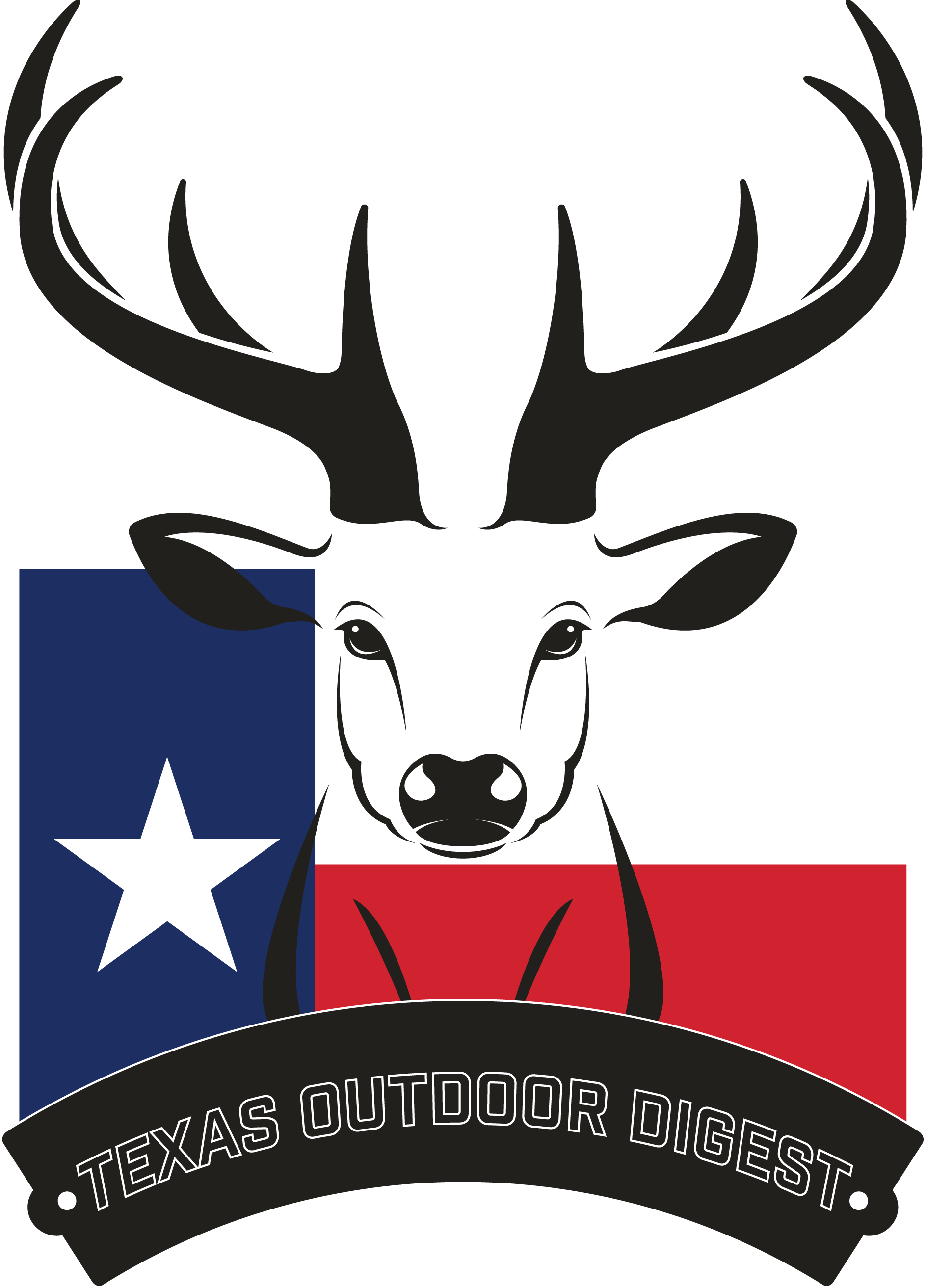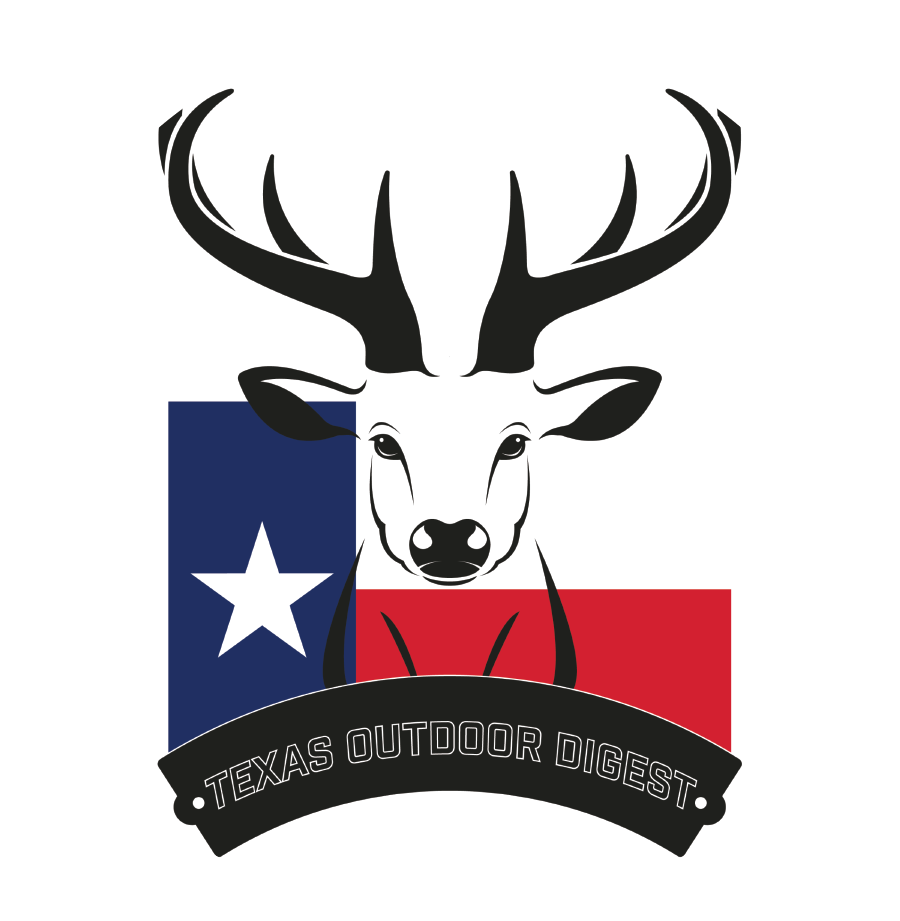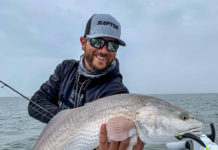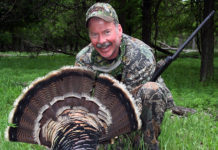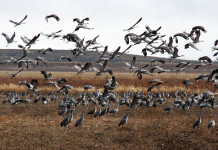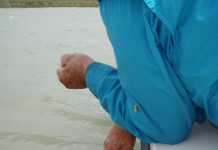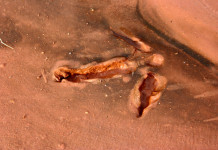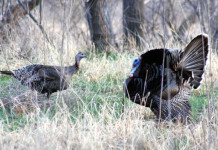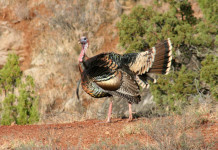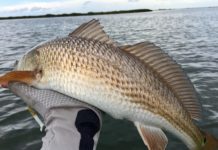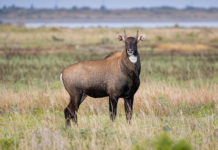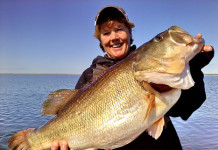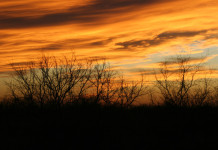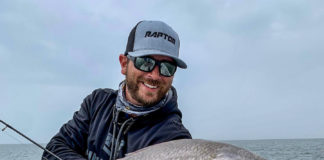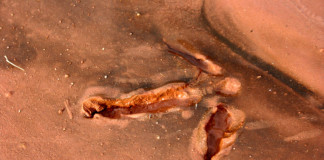The Daily Texas Outdoor Digest is sent to your inbox to keep you up to date about hunting, fishing, conservation and outdoors pursuits making headlines and going viral in the Lone Star State and beyond. It’s free, so subscribe today!
Here’s what’s worth reading today, Friday, April 10, 2020:
How the new Texas state record bluefin came to be
In a very direct sense, the pending new Texas state record bluefin tuna was a victim of the coronavirus. Whether or not fish can actually catch this disease, who the hell knows, but the trip that resulted in greasing the biggest bluefin in the history of the Lone Star State was the result of being cooped up in the house awaiting the virus to run its course. Captain Robert Nichols, who runs the Rock Mama, a 55’ Hatteras based out of Galveston was gracious enough to tell us all about this fish of a lifetime.
Boat owner, and the man who reeled in the fish, Daniel Miers asked Nichols if he could round up a crew to take advantage of the weather window that presented the opportunity to get offshore and out of the house for a while. On the boat were Miers, his son Jacob, Capt. Robert Nichols and his two brothers Derek and Scotty. “We left out of Freeport Tuesday evening and slowboated about 100 miles to the Nansen Rig,” Nichols says.
“I talked to Capt. Troy Day. He had caught two blue marlin the day before but was heading home. Captain John Cochrane killed a bluefin that went 599 at Nansen too, so we were pretty excited. We planned to live bait for blue marlin.”
After getting a bit of sleep, the crew filled their tuna tubes at 4:30 am in the lights of the rig. “We put the baits out at 6:45. At about 7:00 there was an explosion. It’s hard to describe, but it looked like a 400 or 500-pound cannonball blew up in the water. There was a drill ship out at Nansen and we hooked the fish off of the bow of the drill ship.”
“We backed down a total of seven miles during the fight. When we were about four miles away from the rig, the tuna took a big run. The next thing you know, I looked down off the port side of the boat and there was a school of giant bluefin swimming and jumping around the surface of the water. We were surrounded by big tuna. I think the fish tried to join up with the school even though it was hooked.”
“My boss, Daniel Miers, hooked the fish and fought in the chair the whole time. We fought the fish for about six hours and 40 minutes. It was a pretty incredible feat. I think the whole time he might have had a few bites of kolache (a really great type of breakfast pastry) and three or four bottles of water—and that’s it. He hooked the fish himself.”
Department of Interior proposes historic expansion of hunting and fishing opportunities
Continuing the Trump Administration’s significant efforts to increase recreational access on public lands, U.S. Secretary of the Interior David L. Bernhardt has announced a historic proposal for new and expanded hunting and fishing opportunities across more than 2.3 million acres at 97 national wildlife refuges and 9 national fish hatcheries. This proposed rule is the single largest expansion of hunting and fishing opportunities by the U.S. Fish and Wildlife Service in history.
“America’s hunters and anglers now have something significant to look forward to in the fall as we plan to open and expand hunting and fishing opportunities across more acreage nationwide than the entire state of Delaware,” said Secretary Bernhardt. “The U.S. Fish and Wildlife Service’s Hunt Fish Chiefs have been instrumental in our effort over the past two years to streamline our regulations and identify new opportunities for sportsmen and women like no other previous administration.”
This proposed rule would create nearly 900 distinct new hunting and fishing opportunities (an opportunity is defined as one species on one field station in one state). On top of last year’s expansion of 1.4 million acres for new or expanded hunting and fishing opportunities, this proposal would bring the Trump Administration’s total expansion to 4 million acres nationwide.
Angry California anglers disrupt sport fishing ban meeting
A teleconference with California regulators to discuss a potential limited ban on freshwater sportfishing amid the coronavirus pandemic was abruptly canceled Thursday after it descended into chaos, with some of those who called in branding officials as “fascists” and shouting “make fishing great again.”
The Fish and Game Commission meeting was aimed at deciding whether to give emergency powers to Charlton Bonham, the governor’s appointee overseeing the Department of Fish and Wildlife, the Sacramento Bee reported. If the powers are granted, Bonham could limit fishing in some California rivers, streams and lakes at the request of local officials concerned that visiting recreational fishing enthusiasts might spread the virus.
But the meeting was overwhelmed by more than 500 participants on the call, many of whom mistakenly believed commissioners might cancel the entire fishing season statewide. Earlier this week, a group of conservative politicians, sheriffs and media outlets told social media followers that the administration of Gov. Gavin Newsom, a Democrat, was planning to do that, the newspaper said.
Boom or bust: Kansas hunting, fishing guides hit differently by COVID-19 fallout
As many Kansans remain tucked away indoors this spring during the novel coronavirus pandemic, the outdoors industry is taking a hit. Just as with other businesses, COVID-19 is having an effect on fishing and hunting guides in Kansas. But much like the mysterious disease, it’s not hitting everyone the same way.
The extent of the damage ranges from minimal or even a slight upturn in business in some instances to a complete halt of business in others, as cancellations leave some guides hurting while others are able to capitalize on the suddenly free time many potential customers have.
An example of an outdoor business that has been hit hard is C and S Whitetails near El Dorado, a guide service owned by Chad Onek. Onek usually is busy guiding turkey hunts at this point in the spring. But since the coronavirus pandemic hit, he has seen mass cancellations. As of Monday night, Onek reported having 18 cancellations — two youth hunts, four adult shotgun hunts and all 12 of his archery hunts.
Oregon will limit hunting, fishing to state residents starting this weekend
Oregon will prohibit all non-resident hunting, fishing and shellfishing activity, starting at midnight Friday, in an effort to stem a surge of non-resident anglers, mostly from Washington.
The action follows Washington’s decision to close all hunting, fishing and shellfishing until at least early May. In a news release Thursday afternoon, the department cited COVID-19 concerns and said it will last until coronavirus restrictions are lifted. The ban does not apply to anyone living in Oregon for less than six months who hasn’t established residency.
With boats stuck in harbor because of COVID-19, will fish bounce back?
A global slowdown of the commercial fishing industry is bad news for anyone who makes their livelihood from the sea, and fishermen will no doubt suffer. However, for the world’s beleaguered fish populations—and the scientists trying to revive them—this unplanned fishing pause presents a research opportunity, one that could demonstrate a better, more sustainable way to manage the oceans in the post-COVID-19 era.
The question now is what effects, if any, a slowdown will have on fish populations. A slowdown that lasts a couple of months would not have much long-lasting impact. However, if demand for fish dropped because of a wider recession, operations could take longer to restart. A slowdown of at least a year would allow most fish to go through their spawning cycle—and that may be enough for some species to flourish.
Past catastrophes illustrate what occurs when fishing is suddenly impossible. During WWII, many European and North American fishing boats were pressed into military service as supply or patrol vessels. For the rest, mines and submarine attacks often made it too dangerous to venture out. “The war brought temporary reprieve for ocean life and allowed commercial stocks of cod, haddock and plaice to replenish after heavy fishing pressures during the interwar period,” says a 2012 paper in Environment and Society. In Europe, catch records for some fish dropped 60 to 80 percent.
Stay in the Know With The Daily Texas Outdoor Digest
If you haven’t subscribed yet, there’s no better time than right now (We hate spam and we won’t share your information with anyone. That’s just not cool):
